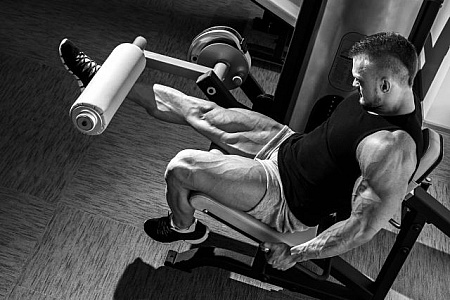As a seasoned authority in the realm of sports and fitness, I have devoted my career to unraveling the intricate dynamics that govern human movement, athletic performance, and physical well-being. In this comprehensive discourse, we delve into the multifaceted world of fitness and sports, exploring the symbiotic relationship between health and performance, and uncovering the key principles that underpin success in both arenas.

- The Science of Fitness: Fitness is not merely a pursuit of physical prowess; it is a holistic endeavor that encompasses strength, endurance, flexibility, and mental resilience. At its core, fitness is grounded in the principles of exercise physiology, biomechanics, and nutrition, which collectively govern the body’s response to physical activity and training stimuli.
- Exercise Physiology: Understanding how the body adapts to exercise is fundamental to optimizing fitness outcomes. From the cardiovascular system’s response to aerobic exercise to the neuromuscular adaptations induced by strength training, exercise physiologists study the physiological mechanisms that underpin athletic performance and physical conditioning.
- Biomechanics: Biomechanical analysis plays a pivotal role in enhancing movement efficiency, reducing injury risk, and optimizing athletic performance. By examining the forces, torques, and kinematic patterns involved in various sports movements, biomechanists can identify inefficiencies and design tailored training programs to enhance biomechanical efficiency and athletic performance.
- Nutrition: Proper nutrition is the cornerstone of optimal performance and recovery in sports and fitness. From macronutrient composition to micronutrient intake and hydration strategies, nutritionists tailor dietary plans to meet the unique energy demands of athletes and support their training, performance, and recovery goals.
- The Art of Sports Performance: Sports performance is the culmination of physical prowess, technical skill, tactical acumen, and mental fortitude. Whether on the field, court, track, or gym, athletes strive to optimize their performance through systematic training, strategic preparation, and relentless pursuit of excellence.
- Technical Skill Development: Mastery of technical skills is essential for success in sports. Whether it’s perfecting the biomechanics of a golf swing, honing the footwork of a tennis serve, or refining the shooting form in basketball, athletes dedicate countless hours to mastering the intricate skills required to excel in their respective sports.
- Tactical Acumen: In addition to technical proficiency, athletes must possess a deep understanding of game strategy, tactics, and situational awareness. Whether it’s reading the defense in football, anticipating the opponent’s next move in chess, or executing a well-timed counterattack in soccer, tactical acumen separates the average from the exceptional athlete.
- Mental Resilience: Mental toughness is the bedrock of athletic success, enabling athletes to overcome adversity, perform under pressure, and persist in the face of setbacks. Through visualization, goal setting, mindfulness, and psychological skills training, athletes cultivate the mental resilience needed to thrive in the competitive arena.
Conclusion: In conclusion, the pursuit of fitness and sports excellence is a dynamic journey that transcends physical exertion and technical skill. It requires a comprehensive understanding of exercise physiology, biomechanics, nutrition, technical skill development, tactical acumen, and mental resilience. By integrating science-based training principles with strategic preparation and unwavering determination, athletes can unlock their full potential and achieve success on and off the field of play.


